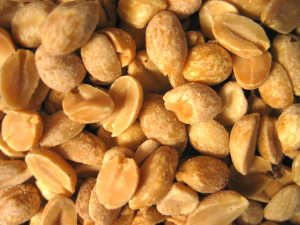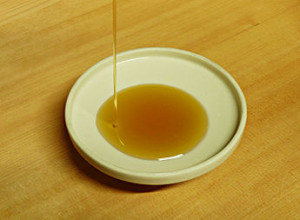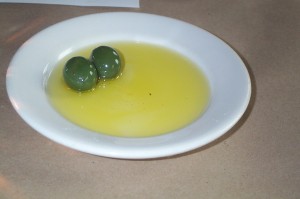 Pan frying has taken a beating over the past several years. We’ve heard the warnings – Don’t fry, fry less or at least trade up to a more health conscious oil. However, it’s true that a succulent piece of fried chicken or cod, a helping of golden fries, hush puppies, green tomatoes, or onion rings sometimes hits the spot like nothing else. Frying is part of our history and culture. It’s a warm, comforting and simple pleasure. Grandma may still use lard, tallow or schmaltz, and we’ll always love licking it from our fingers, but at other times, we can choose cooking oil derived from vegetables, nuts or seeds.
Pan frying has taken a beating over the past several years. We’ve heard the warnings – Don’t fry, fry less or at least trade up to a more health conscious oil. However, it’s true that a succulent piece of fried chicken or cod, a helping of golden fries, hush puppies, green tomatoes, or onion rings sometimes hits the spot like nothing else. Frying is part of our history and culture. It’s a warm, comforting and simple pleasure. Grandma may still use lard, tallow or schmaltz, and we’ll always love licking it from our fingers, but at other times, we can choose cooking oil derived from vegetables, nuts or seeds.
There are dozens of plant-derived oils on the market. A quick glance down the cooking aisle of your favorite grocery is enough to confuse the most well-intentioned cook. With a little information and experimentation, we can know the best oils for pan frying and have the confidence to fry up something tasty, healthy, and satisfying. With that said, there are two main things to keep in mind when choosing a frying oil:
-
Pan-frying requires oil with a high smoke point; meaning it can safely reach the temperatures needed for frying without smoking. Oil that is smoking in the pan is releasing free radicals, or cancer causing chemicals, into the air and into our food.
-
No matter which oil we choose, it must be stored in a cool, dark place to retain its quality and performance.
Peanut Oil
Peanut oil, derived from the peanut legume, is rich in antioxidants and “good fats.” It helps to rid the body of free radicals, can help lower blood pressure, and shows promise in slowing the progression of Alzheimer’s disease. Its distinctive flavor is a high-note in Asian cooking, but may not be as welcomed with all American frying, and the frequency of peanut allergies may preclude its usage by some.
Gingelly Oil
Gingelly, or sesame seed oil, commonly pressed from white or black sesame seeds, is high in copper, making it an excellent anti-inflammatory and its amino acids act as an anti-depressant. Among lab animals, gingelly shows evidence of reducing blood glucose levels and is being studied as an aid in Type II diabetes. However, those utilizing anti-coagulant medications must exercise caution with gingelly since it also thins the blood.
Canola Oil
Canola oil, taken from a genetically engineered plant related to the rapeseed, is rich in omega-3 and omega-6 fatty acids. It lowers bad cholesterol and boosts brain health and development. It also boasts the least amount of saturated fat compared to other common oils. However, if consuming genetically modified oil, even with less “bad fat”, is a personal concern, some further investigation may be needed.
Light Olive Oil
Light olive oil is a good choice for frying. It’s colorless and tasteless, so it won’t taint your favorite foods with its presence, and has one of the highest smoke points. The downside, for some, is its super-refinement, which warrants the addition of other oils to boost its luster. Yet, it still contains a good amount of vitamin E and LDL lowering monounsaturated fat.









Leave a Reply